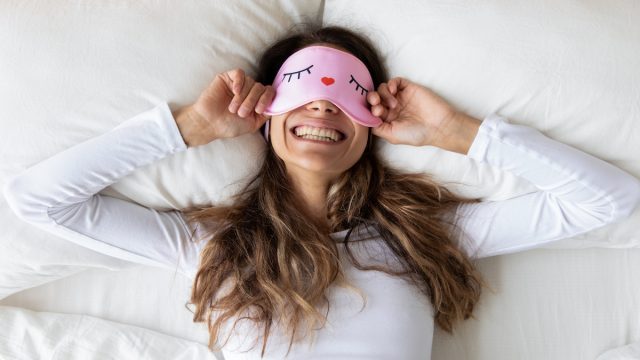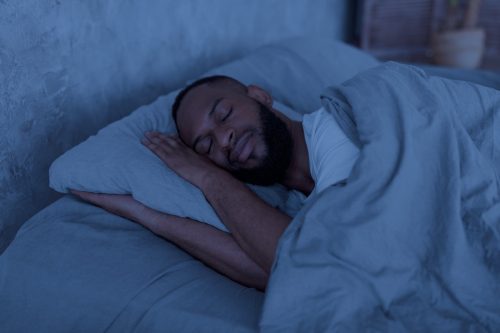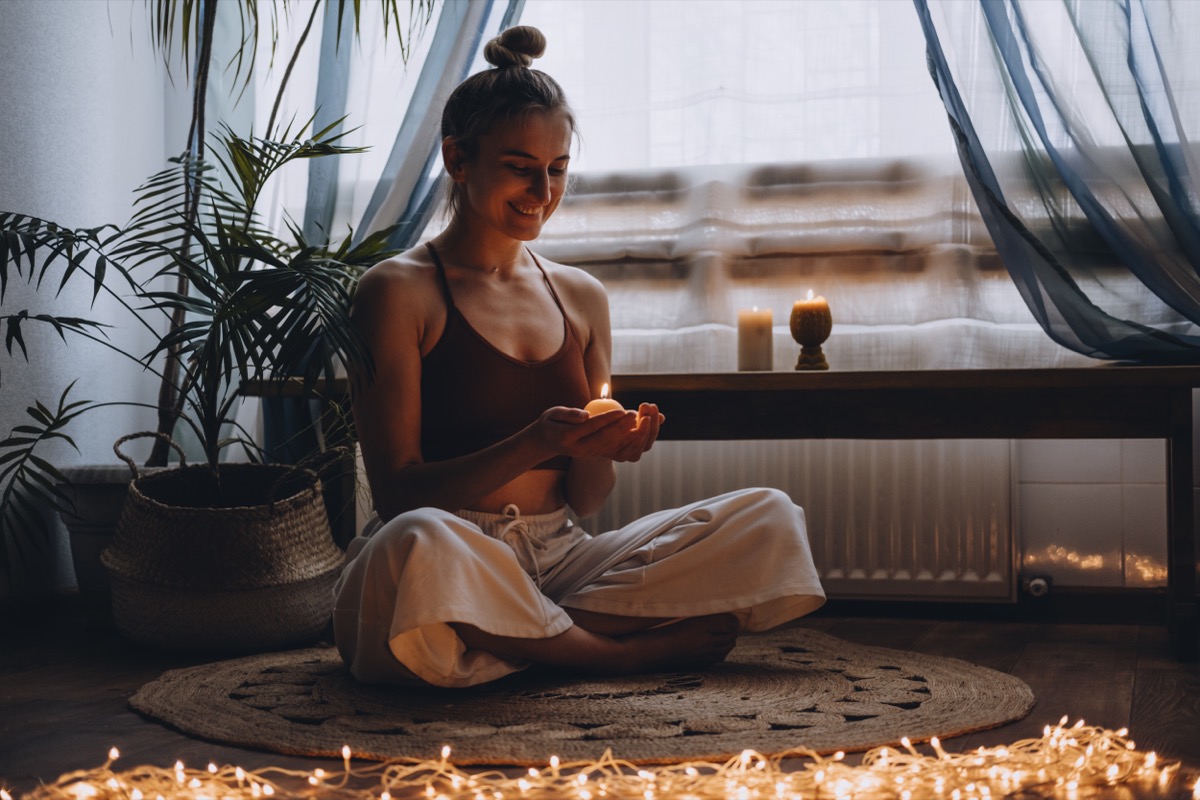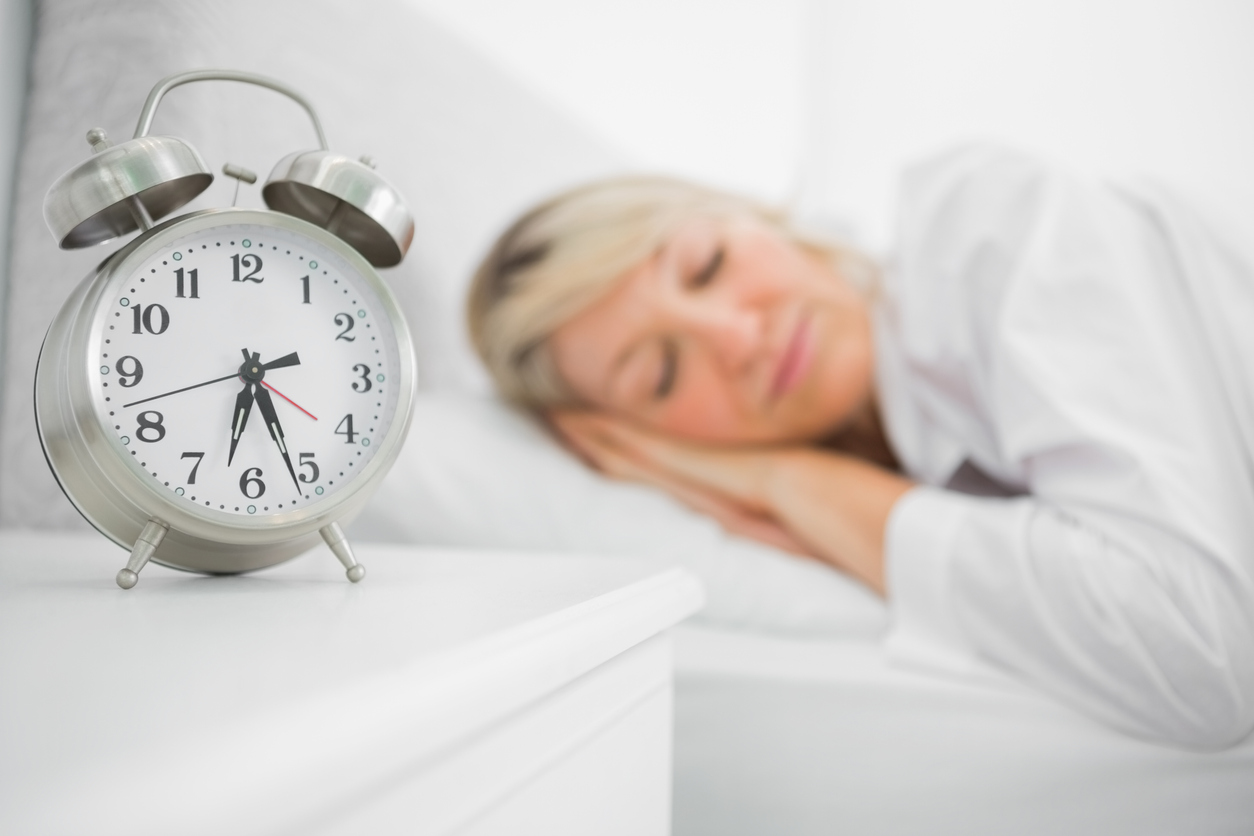6 Bedtime Habits of People Who Never Get Sick

Being chronically under-rested can take a heavy toll on your health—both physical and mental. In fact, research shows that getting too little sleep or poor quality sleep can affect your immune system, making you more susceptible to illness if you’re exposed to a virus.
“During sleep, your immune system releases proteins called cytokines, some of which help promote sleep,” explains the Mayo Clinic. “Certain cytokines need to increase when you have an infection or inflammation, or when you’re under stress. Sleep deprivation may decrease production of these protective cytokines.” They add that infection-fighting antibodies and cells are reduced in people who get fewer than seven to nine hours of sleep per night.
If you’re struggling to fend off illness and believe your sleep habits could be to blame, it may be time to take a page from the book of people who never get sick. Read on to learn which bedtime habits can ward off illness and leave you feeling your best, according to sleep experts.
RELATED: What Happens When You Don’t Wash Your Sheets Every Week, Doctors Say.
1
They create a restful environment.

Walk into the bedroom of someone with a strong immune system, and you may notice some differences from your own. The experts say they’re more likely to have a setup that’s conducive to a good night’s rest.
“This means a dark, quiet, and cool environment,” explains Ryan Sultan, MD, a board-certified adult psychiatrist, therapist, and professor at Columbia University. “Exposure to light can disrupt the body’s production of melatonin, a hormone that regulates sleep. An uninterrupted sleep environment facilitates the body’s natural repair processes, which play a pivotal role in immunity and overall health.”
Richard Prasad, a sleep expert and the founder and CEO of Sleep 365, says you should think of your sleep environment as your “personal health command center.” The lighting, temperature, and sounds “should be optimized to foster high-quality sleep,” he says.
RELATED: 5 House Plants That Will Help You Sleep, Experts Say.
2
They limit screen time before bed.

People who never get sick are also more mindful of limiting screen time before bed.
“The blue light emitted by phones, tablets, and computers can interfere with melatonin production. Adequate melatonin ensures sound sleep and possesses antioxidant properties that help protect cells from damage, enhancing the body’s resilience against pathogens,” Sultan explains.
He recommends reducing screen time at least an hour before bedtime to allow your body to prepare for rest naturally. Hafiz Shariff, a sleep expert and the founder of bedding brand Owl + Lark, agrees and recommends reading or listening to music or a podcast during the evening hours instead.
RELATED: 7 Clothing Items You Should Never Sleep In, Experts Say.
3
They avoid large or unhealthy evening meals.

How you eat in the hours before bed can also determine the quality of your sleep. That’s why people who rarely get sick are more likely to keep healthy diets and eat smaller portions in the hours before bed.
“A healthy diet is a huge factor in determining our sleep quality and our general health. Eating a large meal before bed can make it harder to sleep since you’ll still be digesting, as can a sugary snack or drink,” explains Shariff.
RELATED: 15 Life-Changing Habits to Add to Your Wellness Routine.
4
They curb their caffeine and alcohol intake.

Experts also note that people who stay healthy are far more likely to limit their alcohol consumption, especially in the hours before sleep.
There are two key reasons for this. First, minimizing alcohol can lead to fewer sleep disruptions, research shows. Second, limiting your intake can directly benefit your health by no longer suppressing your immune system.
Drinking coffee later in the day can also negatively affect your sleep. “Cut down your caffeine intake in the afternoon and the evening, and avoid alcohol before bed,” advises Shariff.
RELATED: I Tried Liquid I.V. Hydration for Two Weeks & Noticed 4 Changes to My Body.
5
They use relaxation techniques.

Sultan says that engaging in relaxation exercises like deep breathing, progressive muscle relaxation, or even meditation can help ease the transition into sleep.
“These practices enhance sleep quality and reduce stress hormones in the body. Chronic elevated stress levels can weaken the immune system, so you’re bolstering your body’s defense mechanisms by reducing stress,” he notes.
“Chronic stress and anxiety are common culprits for sleep disturbances,” adds Naheed Ali, MD, a doctor and the lead writer at Sleep Bubble. “Mindfulness helps in attenuating this stress response, promoting restful sleep.”
RELATED: 10 Ways to Feel Calm and Happy (That Aren’t Meditation).
6
They establish a consistent sleep schedule.

This last habit might seem obvious, but having a set bedtime and wake time helps people budget their time to get the right total number of hours to rest.
“One of the first steps you should take to improve your sleep hygiene is to set a schedule; if you wake up and go to bed at completely different times each day, it messes with your body clock and you will find it harder to get to sleep and wake up in the morning, leaving you feeling tired for the day and affecting your overall health,” says Shariff.
“Try getting into bed and then waking up at roughly the same time each day, even when it’s a weekend,” he suggests. You’ll feel more rested, and your immune system will be balanced so you’ll (hopefully!) never get sick.
For more wellness tips sent directly to your inbox, sign up for our daily newsletter.